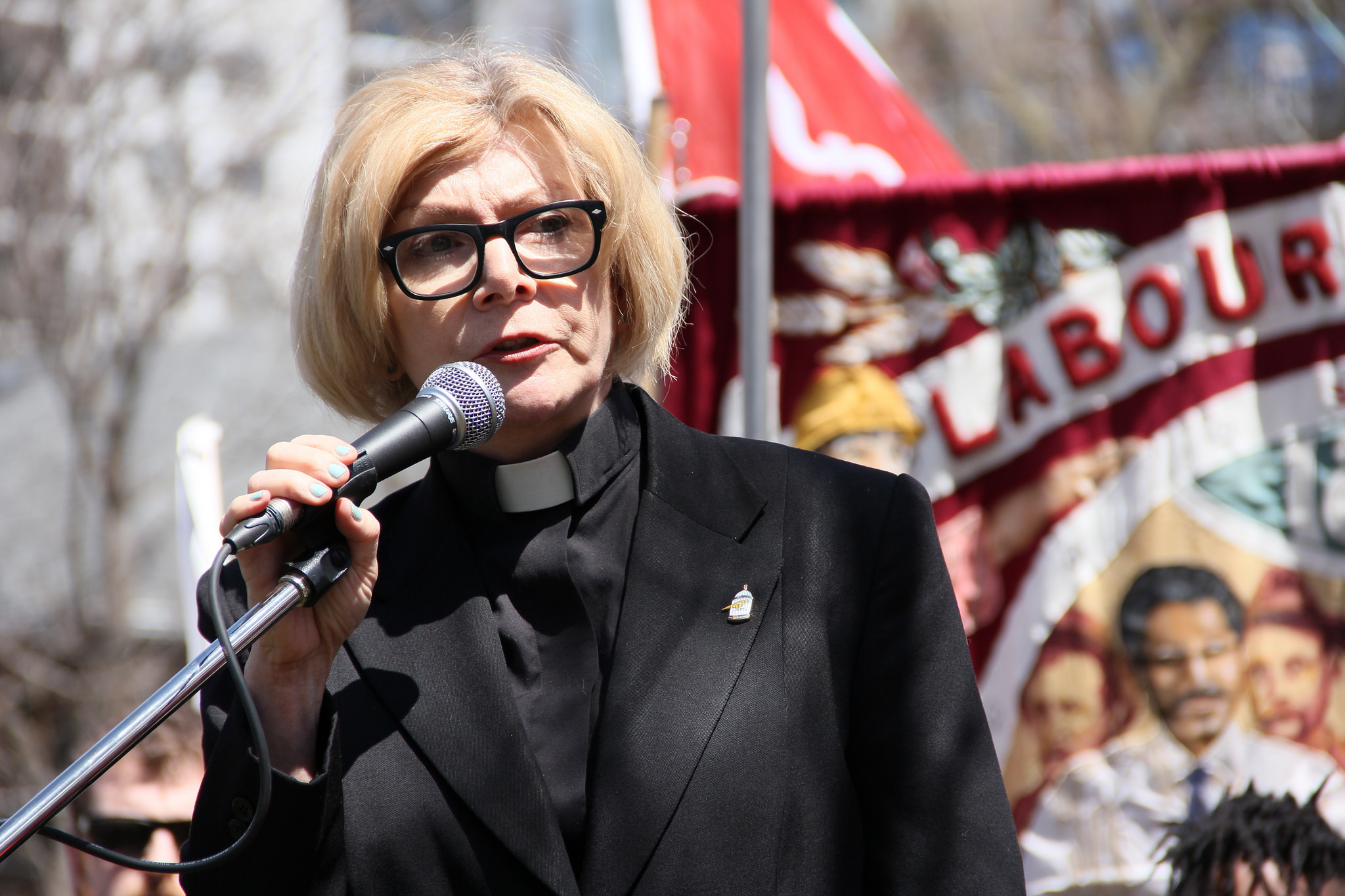Like this article? rabble is reader-supported journalism. Chip in to keep stories like these coming.
This morning, Cheri DiNovo announced that she’s running for leader of the NDP. She also announced that she would not be ponying up the requisite $30,000.
NDP insiders and conservative pundits alike snarked at the apparent contradiction. The problem is that while the snark from the right should be anticipated, the snark from the right within the NDP exposes a difficult truth: The NDP needs to figure its shit out.
DiNovo is a caustic candidate for many reasons: she’s inconsistent, she can fly off the handle and she’s a woman. She is also honest: stating that she would step aside for a candidate with better skills exposes at least one skill she lacks: strategy.
But the race is currently empty and having a candidate who is to the left of the party establishment should be useful. DiNovo put free education, pharmacare and better LGTBQ rights on the table. She said that the principles of the Leap Manifesto should be brought into the NDP’s policy.
Not a bad start for the campaign.
She has also used her platform to protest the new requirement that NDP leadership candidates must enter the race with $30,000 — a move that has been widely criticized on the Left.
Of the three hard rules on balloting in this race, none of them refer to the entrance fee. In mid-May, federal council pegged the fee for leadership candidates at $30,000 and a ceiling of $1.5 million for all campaigns. But details like when a candidate needs to have paid this fee (i.e. before the race, or at some point during the race) haven’t yet been decided. No other rules have been released.
Considering this, what point is there in discrediting DiNovo? Focusing on the money rather than the politics is the job of the press: there’s no good reason for NDP partisans to play along.
Driving the incoherence on this issue is that the NDP does not have a consistent political understanding of the role that money should or should not play in politics. NDP actions over the past decade are rooted in a strategy that says they can play the same game of the Liberals and the Conservatives — and win.
The 2015 election was, by most metrics, a failure for the NDP. But, it was their most successful fundraising year yet. And, though the heady days of hourly fundraising requests are over for now, it’s clear that the party sees fundraising, in the traditional sense, as core to its operations.
Maybe that’s why people have been so quick to mock DiNovo: her protest exposes the hollowness the NDP’s progressive cred on money in politics.
Everyone on the left wants money. I’m involved with enough progressive organizations to know that we’re all crawling over each other for $5 here and $10 there, desperate to maintain our best-year returns.
But most of the brilliance that comes from the left doesn’t grow out of money. It grows out of creativity and passion. Inspiration comes from a thirst for justice. It can rarely be purchased.
Indeed, there are more than enough high-cost campaign examples that demonstrate that money and quality campaigns can be mutually exclusive.
A progressive political party cannot fundraise in the same ways that the Parties of Capital fundraise.
The NDP needs to find a better way to do politics and in an awkward way, DiNovo’s campaign calls for exactly that. If your organization or political party is progressive, funds cannot restrict access.
In Ontario, the party (which includes DiNovo) boycotted the Liberals’ fundraising review process until mid-May when Horwath issued a letter indicating what the ONDP could support.
Unfortunately, her letter doesn’t seem to be public and there’s only one statement on the ONDP’s website on the matter since May 1. According to the Toronto Star, Horwath’s current hang-up is related to a Harperesque line that would ban advertising for an issue that could be associated with a political party.
Wynne’s reforms will ban corporate and union donations and increase public funding to political parties, based on vote share. The proposed cap remains at several thousands of dollars though, a far cry from Quebec’s limit of $200 per person during an election year.
Like with everything with the Liberals, the reforms are a mixed bag of bad and good.
If DiNovo’s own caucus couldn’t respond coherently to Wynne’s fundraising reforms, including how they would reform the system if elected, it suggests that there’s a deeper problem within the party. A lack of political analysis around fundraising is an enormous problem, and creates weird situations like the debates triggered by DiNovo’s leadership launch.
I know, the NDP is allergic to internal debate at the best of times, and this leadership race caught the party establishment off guard (even if they orchestrated the downfall of Mulcair, as Howard Hampton intimated).
But if the rules for the leadership race have not yet been finalized, then taking DiNovo to task rather than trying to spin something useful from her leadership bid is the mark of partisans who aren’t sure where they’re going. It’s almost as if you can see their fears and anxieties projected onto the United Church minister.
If a protest in the party over a legitimate concern can’t be tolerated, how are Canadians supposed to expect that the NDP can effectively confront the austerity policies of the slick Trudeau?
Image: Flickr/United Steelworkers
Like this article? rabble is reader-supported journalism. Chip in to keep stories like these coming.



